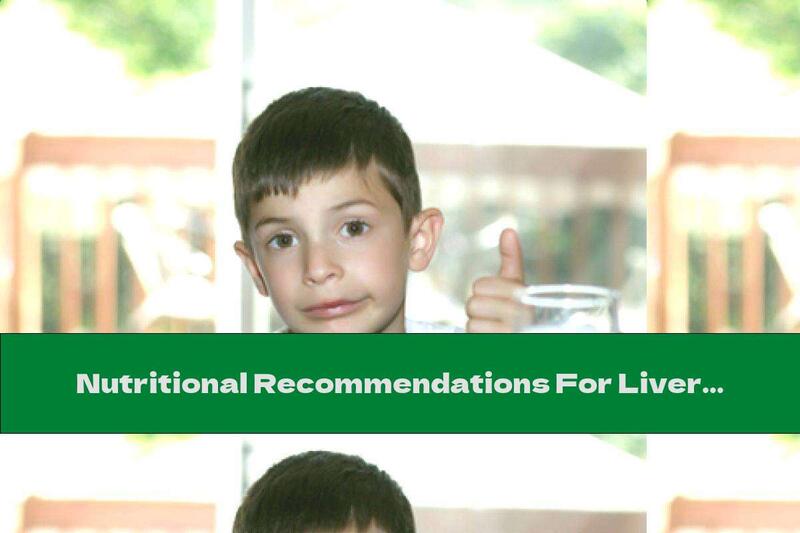Nutritional Recommendations For Liver Cirrhosis
 Author: Victoria Aly
Time for reading: ~2
minutes
Last Updated:
August 08, 2022
Author: Victoria Aly
Time for reading: ~2
minutes
Last Updated:
August 08, 2022

In this article, learn more about Nutritional Recommendations For Liver Cirrhosis. When is cirrhosis of the liver necessary to limit daily salt intake?.
The liver is a vital organ that is part of the digestive system and performs a number of important functions for the body. A number of factors - infectious agents, dietary error, excessive alcohol intake, medication can lead to damage to its structure and, accordingly, disease changes in its functions.
Liver cirrhosis is a chronic progressive liver disease in which the following changes are observed - necrosis of part of the cells (hepatocytes), partial regeneration and growth of connective tissue, which has no functional value. Adherence to a proper diet has to do with both reducing the progression of the disease process and the subsequent complications from other organs due to liver disease.
After determining the cause of liver disease and prescribing medication to patients, dietary recommendations are explained regarding what is appropriate to reduce or completely exclude from the menu.
In the first place, it is important to stop drinking alcohol . The reason is that in patients with cirrhosis, the function of the liver to neutralize some toxic compounds due to metabolism is greatly reduced, so they circulate freely in the body and can affect other organs.
Ascites is one of the complications of liver cirrhosis. It is a collection of freely moving fluid in the abdominal cavity and causes swelling in this area. In these patients, a significant reduction in salt intake is mandatory , as it helps to retain additional water and thus worsen the condition. In patients with ascites, the daily recommended dose is reduced from 5 to 2 grams. In addition, the consumption of various semi-finished products - sausages, smoked foods and preservative-rich meats, which include a significant amount of sodium chloride - should be limited.
In the development of esophageal varices and / or gastritis (inflammation of the lining of the stomach) it is necessary to avoid spicy foods and spices, carbonated beverages, sour (lemon, tomato juice, vinegar). It is preferred that the temperature of drinks and meals be moderate - not too hot or cold.
Food preparation should be mainly by baking or cooking, but at the expense of avoiding fried and fatty foods. From the meat is preferred chicken, fish, rabbit - the so-called lean meats. Meat and mushroom broths are reduced at the expense of those made from vegetable soups. Of dairy products, the consumption of cottage cheese, egg white is recommended.
The issue of optimal protein intake with food is controversial. The recommendations for the main energy imports are that they be at the expense of carbohydrates. In the decompensated stage of the disease, the function of the liver to neutralize the ammonia formed as a result of protein metabolism is limited. This is the reason for reducing protein intake to 0.5 g / kg body weight.
The purpose of dietary recommendations is to ensure maximum liver sparing, while providing a varied diet and supporting faster recovery.
Related Articles
- Fruitskewers in Honey Syrup: Nutritional Benefits and Recipes
- Nutritional Benefits of Fruit Skewers in Honey Syrup: A Delicious and Healthy Recipe
- Nutritional Benefits of Fruit Skewers in Honey Syrup: A Healthy and Delicious Snack
- The Nutritional Benefits of Salty Popcorn: A Healthy Snack Option
- The Nutritional Benefits of Popcorn: A Healthy Snack Option